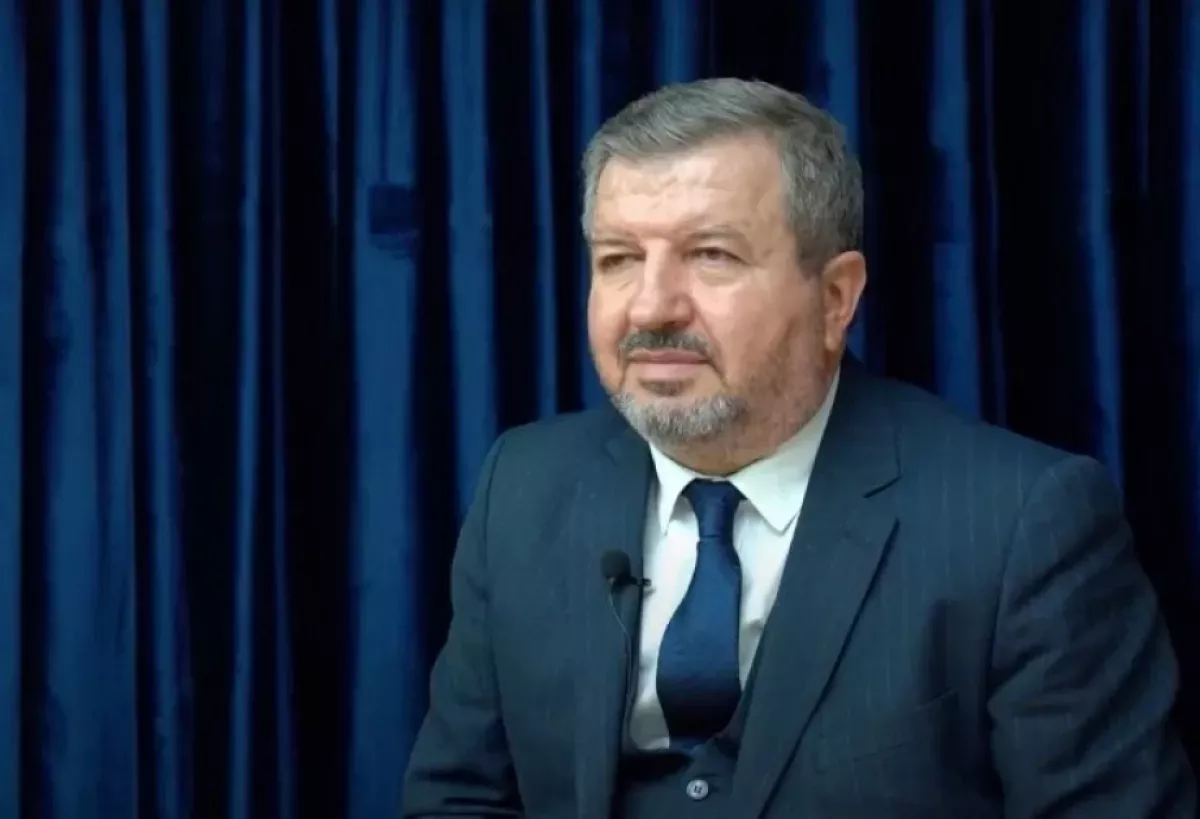Fragile peace on Gaza’s sand Experts weigh prospects of Trump-brokered deal
The agreement to end the war in the Gaza Strip stands as one of U.S. President Donald Trump’s most remarkable achievements in the field of peacemaking—but with one crucial caveat: only if the parties uphold their commitments and do not relapse into another prolonged confrontation.
Nevertheless, the current developments inspire a measure of optimism—Hamas has already released the Israeli hostages.
But how do analysts in the Middle East assess the potential of the agreements brokered with Donald Trump’s mediation? Israeli and Turkish political experts shared their views on this with Caliber.Az.
According to Avraham Shmulevich, an expert on the Caucasus, the Islamic world, and the Middle East, and Chairman of the Institute for Eastern Partnership (Jerusalem), the release of the hostages is undoubtedly a joyous event—although Israel has paid a very high price for it, as a large number of criminals involved in killings have been set free.

“But when it comes to the long-term prospects of this deal, the main problem lies in the fact that Hamas continues to exist as a military organisation. Let me remind you that this is an organisation whose very raison d’être is the destruction of the State of Israel—a goal explicitly stated in its charter—and by definition, it cannot abandon this objective,” he said.
As for the leadership of Hamas, the expert noted that it is composed not of ideological fanatics but rather of individuals who have turned terrorism into a business: “There are around 1,200 activists, including senior militants. Many of them are dollar billionaires who have made their fortunes by embezzling humanitarian aid sent by the international community to the Gaza Strip. In addition, they are involved in illegal trade, including drug trafficking. If terrorism were to end, what would this leadership do? They certainly would not take up honest work. It is in their interest to keep the war going.”
Avraham Shmulevich also noted that the rank-and-file Hamas fighters are ideological terrorists raised in a culture of hatred: “The movement does not intend to lay down its arms. Public executions of those accused of collaborating with Israel are already taking place in Gaza. A considerable number of the enclave’s residents oppose Hamas’s policies, believing that this war was imposed upon them. However, they too cannot be considered defenceless—Gaza is home to Arab clans that have long fought among themselves, and some of them are now opposing Hamas.”
According to him, the situation inside the Gaza Strip is close to a civil war: “Hamas does not conceal its intentions to resume terrorist activity against Israel, but at present, it is preoccupied with internal clashes. We recall that in the past there was, in fact, a civil war between the Palestinian Authority in Ramallah and Hamas. Although both entities declare the same goal—the destruction of Israel—tensions between them remain strong.”
Shmulevich added that other groups also operate in Gaza independently of Hamas, such as Islamic Jihad.
“All this leads to a struggle for power, resources, and influence within the enclave. When one of these factions seizes full control, there is a likelihood that it will once again engage in acts of terror against Israel. The question is whether the U.S. administration will be able to force Hamas to disarm. Trump has stated that they must lay down their weapons, but how this will be implemented remains unclear. If Israeli forces withdraw from Gaza, it is difficult to imagine that international forces could handle Hamas without its consent,” the expert said.
However, according to him, there are also reasons for cautious optimism: “There is a chance that Hamas may be disarmed, as the Americans have placed serious stakes on this agreement. It is not only about ending the conflict but also about a broader project—a transport corridor from India through Arabia and Israel to Europe.”
The expert believes that achieving a lasting peace is still possible, which would require not only the disarmament and dismantling of Hamas but also the opening of an economic route that would integrate Gaza into the global economy.
“If Hamas is overthrown and its militants lay down their arms, then we can speak of a long-term peaceful coexistence. But for now, much depends on how far Trump is willing to go in his efforts. We are at a turning point. The release of the hostages in itself gives hope that diplomacy is still capable of working,” Shmulevich concluded.

In turn, Professor Togrul Ismayil of Kahramanmaraş Sütçü Imam University (Türkiye) believes that the agreement to end the war in the Gaza Strip is an event of enormous historical significance, marking a turning point in a long and bloody conflict.
“The humanitarian importance of this agreement cannot be overstated, as it halts the daily violence that has claimed thousands of lives and provides Gaza’s civilian population—on the brink of catastrophe—with a desperately needed respite. The exchange of Israeli hostages for Palestinian prisoners touches the most painful points for both sides, bringing long-awaited relief to thousands of families. In turn, the opening of humanitarian corridors for the delivery of food and medicine is a key factor in preventing famine and epidemics in the devastated enclave,” the political scientist said.
He also stressed that, from both political and diplomatic perspectives, this agreement represents a major breakthrough, demonstrating that even in seemingly intractable conflicts, diplomacy can still deliver results.
“The central role in this achievement was played by the U.S. administration led by President Donald Trump. His personal involvement and the focused efforts of his team, which brought together key regional players—Qatar, Egypt, and Türkiye—created a strong and unified mediating front. It was precisely this coordinated pressure that compelled both Israel and Hamas to make concessions. For Trump, this represents a major foreign policy success, and for the entire region, a reduction in tensions and the risk of the conflict escalating into a larger war,” the political scientist said.
However, according to the expert, when assessing the potential of these agreements, it is essential to maintain a balanced approach, as they can be described as both significant and extremely fragile.
“The potential for success rests on several factors. First, there is strong international support and high political stakes, which make it difficult for either side to back away from its commitments. Second, the agreement includes concrete steps whose successful implementation could generate the necessary momentum and a minimum level of trust to move forward. Finally, the immense war fatigue in both Israeli and Palestinian societies exerts grassroots pressure on their leaders to preserve peace,” he noted.
However, according to the political scientist, the risks threatening this process are immense, and the greatest danger lies in the fact that the current agreement represents merely a tactical pause, bypassing the fundamental and deep-rooted causes of the conflict.
“Key issues such as the complete withdrawal of Israeli forces, the disarmament of Hamas and its future political role, as well as the model of governance in Gaza, remain unresolved. Any one of these points could become an insurmountable obstacle in the next stage of negotiations. Moreover, on both sides, there are radical forces uninterested in peace and capable of carrying out provocations to derail the truce. The profound lack of trust accumulated over decades of hostility means that even a minor incident could trigger a return to full-scale hostilities.
The agreement reached is not peace itself but rather a unique window of opportunity for building it. It has stopped the bloodshed and given diplomacy a chance. Its true historical value will be determined by whether the parties and international mediators can use this opportunity to move towards addressing and resolving the most complex issues at the heart of the Arab–Israeli conflict,” Ismayil concluded.








